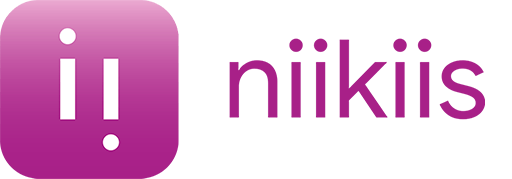Do you face the challenging task of managing your workers' shifts in the hospitality industry? If so, you know that this task can become exhausting. And what's even more exhausting is if you still rely on manual methods or Excel spreadsheets.
How many times have you dealt with shift misassignments, schedule mismatches, endless hours in front of the computer and misunderstandings among your team? If these challenges sound familiar, we have the solution.
In this article, we will explain how to manage the shifts of your teams in the hospitality industry in a simpler, faster and more efficient way.
Leave frustrating mistakes and long hours of setup behind and discover how you can simplify shift management, saving time and effort in the process. Read on!
1) The Art of Shift Management in the Hospitality Industry
Shift management in the hospitality industry is a complicated dance that requires synchronization and precision. Imagine your restaurant business, or your hotel operation, as a big show, where every team member is a vital part of the stage. To perform efficient shift management, you must first understand what is involved and what elements are essential.
Shift management is not simply assigning work hours; it is a careful choreography to ensure that each worker is in the right place at the right time. It takes a combination of organizational skills, an understanding of your team's capabilities and a clear vision of operational needs.
Example In a high-demand restaurant, shift management involves balancing customer experience with staff efficiency. Assigning the right roles during peak hours ensures exceptional service without exhausting the team.
2) The main paint point: Shifts in Constant Motion
There is something that everyone in the industry knows, and that is that in the world of hospitality, shifts are always changing, never the same. Every day presents new challenges and variations in demand, which makes adaptability essential. Rigidity in shift allocation can lead to operational dissonance and staff dissatisfaction.
That is why it is crucial to be able to create shifts in a flexible and adaptive way, customized for each operation and type of business. A static approach simply won't work in an environment where variability is the norm. The ability to adjust shifts according to seasonality, special events or changes in demand is key to maintaining an efficient balance.
3) Tips for stress-free shift management: say hello to technology.
Managing shifts in the hospitality industry doesn't have to be a sleep depriving task. Here are some practical tips to help you optimize your process and save time, freeing you from the headaches of traditional management.
a) Embrace Technology:
The key to smooth and efficient shift management lies in technology. The implementation of software such as niikiis can be your best ally. Such tools not only automate processes, but also allow you to create and modify shifts in a flexible way. Imagine the freedom to adjust schedules in real time, adapting them to the changing needs of your business.
b) Have Real-Time Flexibility:
In the dynamic world of hospitality, the ability to make adjustments on the fly is essential. Advanced software allows you to modify shifts at any time, avoiding misunderstandings and ensuring that each team member is in the right place when he or she is needed most and can view his or her workday from any device and from a single place: the software.
4) Benefits of managing your teams' shifts through software that automates processes
Managing your team's shifts with the help of software like niikiis is not just an upgrade, it is a revolution that brings with it a number of tangible benefits:
a) Autonomy for Workers:
Imagine a scenario where your employees have control over their work schedules. With niikiis, workers can access and manage their shifts autonomously. This autonomy not only improves employee satisfaction, but also fosters a more collaborative, efficient and friendly working environment...
b) Unification of Information:
The centralization of information is key to avoid misunderstandings and errors. Having a software that automates this management, allows you to unify all the information of the working day in one place, eliminating the need for paperwork and also avoiding the use of multiple channels that can generate confusion: emails, whatsapp messages, it's time to say goodbye to the multichannel!
c) Increase in Labor Welfare:
Effective shift management not only benefits workers, but also managers and human resources managers. By reducing the administrative burden and eliminating repetitive tasks, it contributes to a more balanced work environment. more balanced work environment. As discussed earlier, less administrative stress means less burnout and more time to focus on critical aspects of team development.
d) Time Saving and Burnout Prevention:
General managers and human resources managers often get caught up in the whirlwind of never-ending administrative tasks. By adopting technology solutions such as niikiis, they free up valuable time that could be spent on more crucial aspects of management, such as team development, active listening, and improving the work experience, as well as preventing the risk of burnout.
Tip: Delegating administrative tasks to technology not only saves time, but also contributes to a more balanced and people-centered work environment.
Conclusion
Shift management in hospitality doesn't have to be a maze of complications. With tools like niikiis, automation becomes the key to simple and effective management. Take the opportunity to free yourself from the administrative burden, allowing your focus to be where it really matters: on growing your team and continuously improving the work experience. What are you waiting for to leave Excel sheets behind?


 Employee database
Employee database  Documents and e-signature
Documents and e-signature  Reporting and analytics
Reporting and analytics  Payroll and incidents
Payroll and incidents  Time and Attendance Software
Time and Attendance Software  Shifts and task list
Shifts and task list  Absences & time-off
Absences & time-off  Workflows
Workflows  Expense management
Expense management  Recruitment and selection software
Recruitment and selection software  Onboarding
Onboarding  Training and procedures
Training and procedures  Internal communication
Internal communication  Performance assessment software
Performance assessment software  HR surveys and forms
HR surveys and forms  Chatbot
Chatbot 